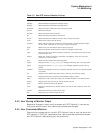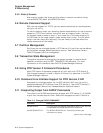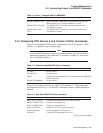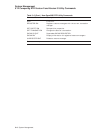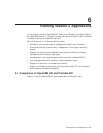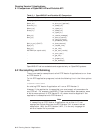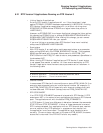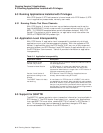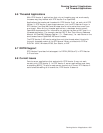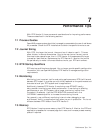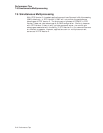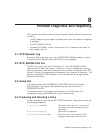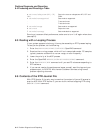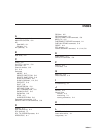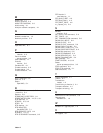
8
Problem Diagnosis and Reporting
RTR Version 3 provides a new error log and logical names to assist tracing errors
including:
• the RTR operator log file, capturing events that occur, and useful for diagnosis
of problems
• the RTR_ERROR.LOG file
• the dump file (.DMP), a binary crash dump that, if needed, must be sent to
your support service
8.1 RTR Operator Log
Always initiate an operator log in your RTR$STARTUP.COM procedure. Place it
in a disk partition separate from the RTR journal or database.
8.2 RTR_ERROR.LOG File
The RTR error log is new with RTR Version 3. The RTR_ERROR.LOG file
captures the call stack and counter information in a form readable by a human
when a crash occurs, and can be read even when no dump is available. With RTR
Version 2, the only log captured was the operator log, named by the operator. The
operator log remains in RTR Version 3, and the new crash dump log provides
additional information.
8.3 Dump File
The system logical name RTR$DUMP_DIRECTORY points to the crash-
dump directory. The logical name specified by the user can be set in
RTR$STARTUP.COM.
To produce a dump, the procedure is the same as in RTR Version 2 (in
unsupported mode, type DEBUG ACP to get a crash dump).
8.4 Producing and Directing a Trace
To start and stop a trace, use the SET TRACE command. To perform a trace, use
the following procedure:
1.
set log/file=
filename Starts your log of the trace. This captures
the trace of the specified subsystem in the
specified file.
2.
set mode/unsupported
Sets mode to unsupported.
3.
set trace/subsystem=
name Starts the trace. Valid names are RTR
subsystem names such as API and JNL.
Problem Diagnosis and Reporting 8–1



